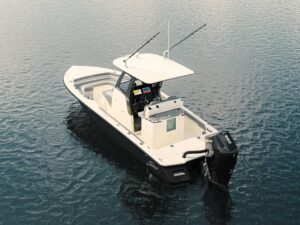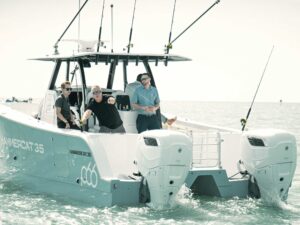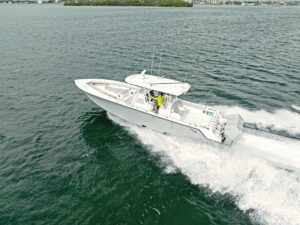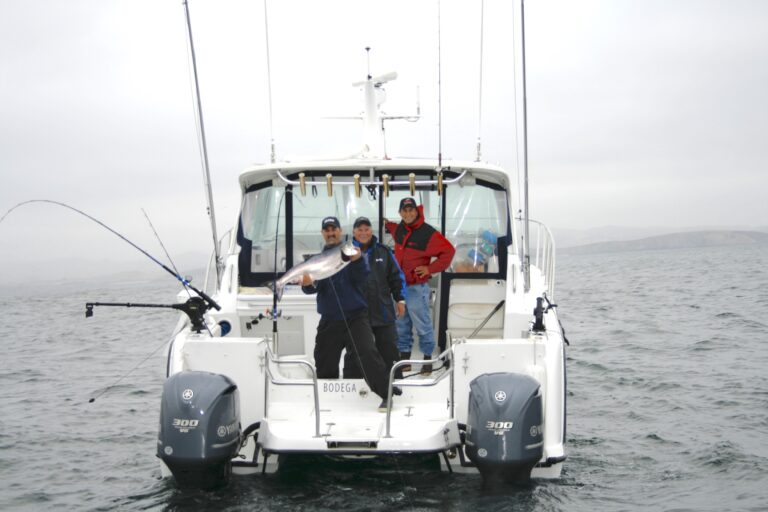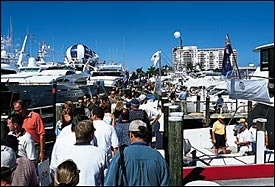
| Boat shows are a great way to get a look at the range of boats available and even test a few out, but you’ll save a lot of time by doing some homework before you go. |
The boat show season is rapidly approaching as I write this, and as far as I’m concerned, there’s no better way wile away a winter weekend than by wandering the aisles, looking at row after row of gleaming gelcoat. Of course, looking is pretty harmless; it’s the buying part that gets us into trouble. So, if you happen to be one of the fortunate souls who actually plans to buy a new boat before the arrival of spring, here are a few things to keep in mind.
How Will You Use It?
Before you toddle off to a show or your dealer with a shopping bag full of hundred-dollar bills, a little homework is in order. Don’t let the excitement of buying a new boat lead you into making a premature decision, one that might cause you to get the wrong boat for your needs. A surprising number of folks never think the decision through adequately.
Look at how you fish and ask yourself some questions. Do you need a boat that will get you to the canyons for tuna, or to the Bahamas for marlin? Will you fish the super-shallow waters for redfish and snook, or do you need a boat that can be used inshore for pursuing striped bass, as well as for limited offshore work? Most of us aren’t focused on one very specific type of fishing, so we need a boat that can be called upon to perform several tasks. Talk to knowledgeable fishermen in your area about hull styles, and ask them which one works best for the types of fishing you plan to do.
After you decide on a hull, carefully examine the layouts of several different brands to see which boat suits your needs. Do you need massive fishbox capacity, or do you release most of your fish? Do you need a large live well? What about dry storage and rod storage? All of these are critical concerns.
What Style?
Center consoles are still the most popular style of fishing boats on the market, but a growing number of companies are building cuddy cabins and walkaround boats. These offer shelter from the storm, and may be more family-friendly.
Ask yourself how often the kids will really go fishing with you and whether the cabin will actually get used, or whether it will merely serve as a place to deposit junk. And unless you’re buying a bigger boat with real below-deck amenities, forget about actually staying aboard. Overnighting sounds like a good idea on the boat-show floor, but small cuddies get cramped in a hurry.
Service Concerns
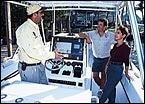
Before meeting with a dealer, jot down a list of questions to ask regarding the boat’s construction, handling characteristics, amenities, options and anything else you can think of.|
The boat dealers we consulted for this article were all adamant about checking for a qualified service technician in your area before making a purchase. Too many people buy a boat without thinking about this, only to find out that the closest factory-certified mechanic is 50 miles away. After a few encounters with non-certified, “shade-tree” mechanics, you will come to appreciate the real value of the guy who has been trained by the factory. Be sure you can get your boat worked on close by.
Where Will You Keep It?
This is no small question. In many parts of the country, residential communities don’t allow you to store boats on trailers in your yard (have you ever heard of such an absurd and barbaric policy?), and deed restrictions grow tighter all the time. Figure out where the boat’s going to go and have it arranged before you buy. Don’t plan to “work it out” later.
Here’s a case in point: In Florida, manatee advocates are pushing hard to severely limit the number of marinas being built, the theory being that with fewer marinas there will be fewer boats and the manatees will somehow be safer. In some parts of the state, marina space is in short supply, especially during the winter months when the boats from up north arrive. Don’t assume that you will automatically be able to rent a slip down the street once you buy your boat.
The same goes for trailerable boats. Research the laws and restrictions in your area thoroughly so you won’t have any surprises when you get your new baby home. If you can’t store your rig in your yard, you might need to rent a space in a storage yard for the boat and/or the trailer, or you might need a stack space at a marina. Either option raises the cost of owning the boat and may add a substantial hassle factor.
Trailering brings up another important point. You need to be sure that you have a vehicle that can tow your new boat. The family Explorer may do just fine with your old 22-footer, but the new 28 you’re looking at could send it to an early grave. If you have to buy a Suburban to haul the new boat around, your costs just went through the roof.
Insurance?
Now that the hysteria within the insurance industry from all of the recent hurricanes (particularly Andrew) seems to have died down a little, the cost of boat insurance has stabilized. But there are some pitfalls to consider. Some companies won’t insure fast boats, and boats go faster every day. Some have a 50-mph limit that may trigger higher premiums. Others exclude coverage for certain geographic areas, or if you travel far offshore or to a foreign country. Discuss insurance thoroughly with your agent before you buy.
Extended warranties are another form of insurance. Most engine manufacturers offer several different options, which are really just supplemental insurance policies. Most carry some sort of time limit on when you must buy, and costs can vary substantially from company to company, and even from model to model within each company.
Know a Good Deal
The dealers we spoke with were unanimous about the importance of developing a relationship with a salesperson at a dealership near your home. Developing a rapport is essential because the dealer will be your primary source for answering questions about your new boat. By speaking with a knowledgeable and professional salesperson, and by doing additional research on pricing through the Internet (many boat companies now post retail prices on their web sites), you can get an accurate feel for what different boats should sell for.
Many of the dealers we spoke with said that customers too often walk into the dealership with a combative attitude towards the salesperson, and that won’t get you anywhere. Remember that dealers are in business to make money, and that the absolute lowest price isn’t always the best deal. You might save a few bucks buying the boat at another dealership or even in another state, only to discover that your local dealer is less than enthusiastic about working on it. Having someone close by that’s eager to help you out when you have a problem is worth its weight in gold.
A little homework will take all of the guesswork out of boat buying, and make it a truly enjoyable experience. Now you just have to round up that bag of hundred-dollar bills and head for the nearest boat show!

